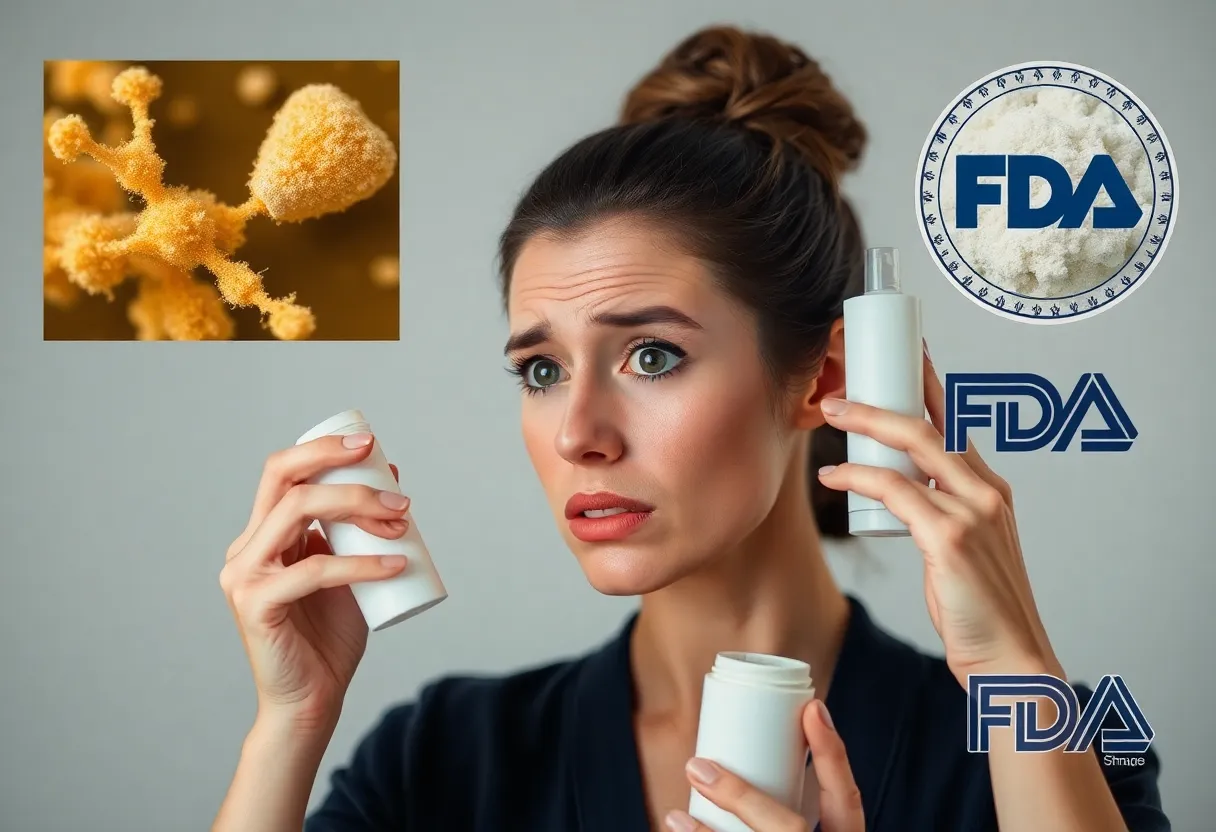News Summary
New FDA Proposal Targets Asbestos in Talc-Containing Cosmetics
The Food and Drug Administration (FDA) has announced a groundbreaking proposal aimed at safeguarding consumers from potential exposure to harmful asbestos found in talc-containing cosmetics. This significant move comes amid rising public concern over the safety of personal care products containing talc, a mineral used widely for its moisture-absorbing properties and ability to enhance product texture.
Why the Concern Over Talc?
Talc is commonly utilized in many cosmetics and personal care items, providing benefits such as preventing caking, increasing opacity, and improving texture. However, the FDA has long been aware that some talc deposits can harbor asbestos, a well-known carcinogen. Not all talc is contaminated, but those that are can contain more toxic forms like tremolite and anthophyllite—both directly linked to severe health conditions, including lung cancer, mesothelioma, and asbestosis.
Recent Findings and Proposed Regulations
In a study conducted in 2019, the FDA tested 52 talc-containing products and found traces of asbestos in 9 samples, raising alarms about consumer safety. Although tests conducted in 2010 and 2023 showed no asbestos, the concerns persisted, leading to congressional inquiries and wider scrutiny of the cosmetics industry—especially in light of recent legal settlements involving a major company and its talc-based products.
The proposed rule mandates that cosmetics manufacturers conduct rigorous testing for asbestos in all talc-containing products, using both Polarized Light Microscopy (PLM) and Transmission Electron Microscopy (TEM). This standardization follows the directives set under the Modernization of Cosmetics Regulation Act of 2022 (MoCRA), which seeks to bring clarity and safety to the cosmetics industry.
Impact of the Proposed Rule
If the proposal is enacted, untested cosmetics or those that test positive for asbestos would be classified as adulterated under the Federal Food, Drug, and Cosmetic Act. The ramifications for manufacturers caught in non-compliance could be severe, as their products may be deemed illegal for sale.
Additionally, the FDA has established strict documentation requirements, necessitating manufacturers to retain records of asbestos testing for a period of three years, which must be promptly made available to the FDA if requested. Companies can depend on supplier certificates of analysis for their talc, but they must verify this information through annual testing to maintain compliance.
A Step Toward Consumer Protection
This proactive legislation represents a major step toward enhancing consumer safety, safeguarding the public from potential asbestos-related health issues linked to talc products. The FDA does not recognize any safe level of asbestos; thus, any presence is considered a risk.
With a deadline for public comments set for March 27, 2025, the proposal is open for feedback, signaling a move toward increased transparency and accountability in the cosmetics industry. Consumers are encouraged to become proactive about the products they use, as the spotlight shines ever-brighter on the ingredients that may pose hidden dangers.
In Summary
The proposed rule symbolizes a significant shift in regulatory approaches to cosmetic safety, following years of advocacy for consumer protection against harmful ingredients. As the FDA prepares to enforce more stringent testing standards, cosmetics manufacturers will find themselves under pressure not only to ensure product safety but to build consumer trust in an increasingly skeptical market.
The complexities surrounding the relationship between talc and health effects—especially in relation to ovarian cancer—remain a subject of extensive research and debate. However, the new proposal marks a critical juncture in the ongoing quest for accountability and safety within the cosmetics industry, paving the way for a future where consumers can feel secure in their choices.
Deeper Dive: News & Info About This Topic
HERE Resources
Asbestos Scandal Erupts at Long Beach’s Colorado Lagoon Construction Site
U.S. FDA Proposes Asbestos Testing for Talc in Cosmetics
Global Asbestos Crisis: Unmasking the Deadly Dangers
FDA Proposes Stricter Asbestos Testing for Talc-Containing Cosmetics
New Mesothelioma Lawsuit Filed Against Johnson & Johnson
Mesothelioma: Alabama’s Fight Against Asbestos Exposure
The Rising Tide of Pleural Diseases: An Alarmingly Growing Health Concern
Uncontrolled Wildfires in Southern California Trigger Mandatory Evacuations and Health Alerts
Revolutionizing Mesothelioma Treatment: The Rise of Opdivo
Connecticut Jury Awards $15 Million for Asbestos Case
Additional Resources
- JDSupra: FDA Proposes New Rule on Testing Talc
- Wikipedia: Talc
- AP News: FDA’s Asbestos Proposal
- Google Search: Talc Cosmetics Asbestos
- Cosmetics Design: FDA Moves to Standardize Asbestos Testing
- Encyclopedia Britannica: Asbestos
- CBS News: FDA Asbestos in Talc Cosmetics
- Google News: FDA Talc Asbestos



















